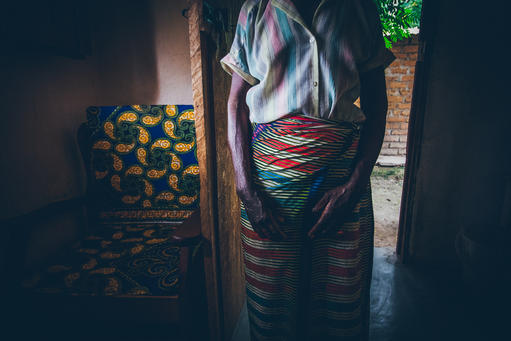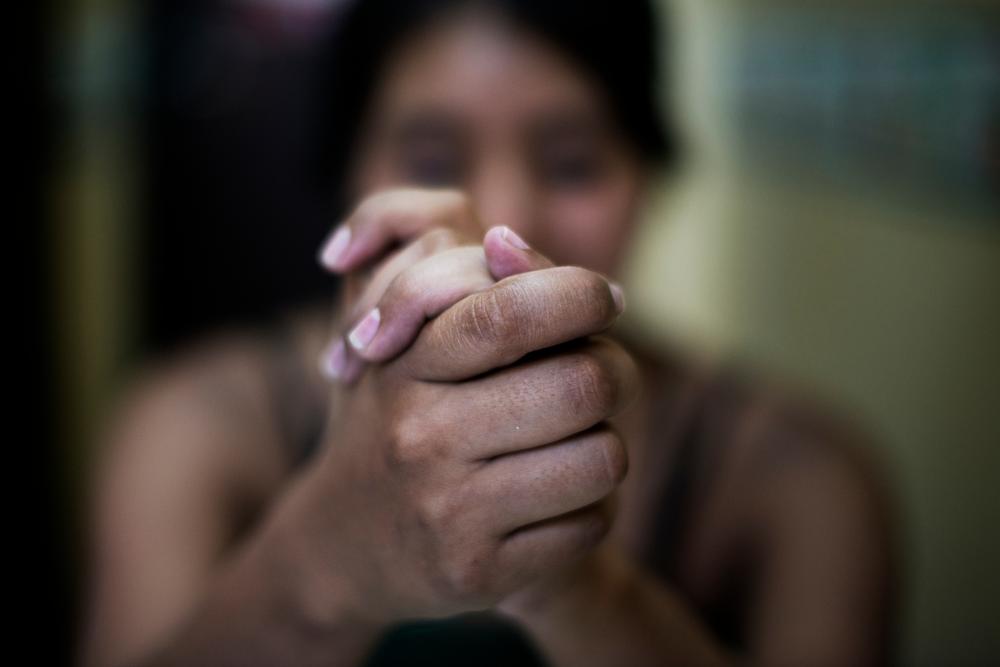Tegus, sexual violence and saying goodbye
Médecins Sans Frontières / Doctors Without Borders (MSF) nurse Sarah writes at the end of eight months in Honduras
Tegucigalpa, affectionately referred to as Tegus by the locals, is not a tourist destination.
A Google or Wikipedia search of the city will tell you that the city has one of the world's highest murder rates. I came upon a blog recently, which describes the city according to it’s "automatic weapons, razor wire, out-of-work drunks, and urban sprawl."
While I cannot deny this statement, this shortsighted, 'passing through the city for a one day assessment' struck a nerve and resulted in me becoming angry with this 'Expert Vagabond'. While I'd be lying if I said I wasn't excited to fly the coop, the city has much more to offer than automatic weapons, pollution and razor wire.
Beautiful and inspiring
Of course, the people are what makes a city and during my eight months here I have had the fortune of meeting many beautiful and inspiring Catrachos.
The people here acknowledge the many 'problems' in their country and are more than aware that the situation is less than ideal, however at the same time are fighting to bring change. There's the group of Hondurans from Associacion Compartir, a local NGO and the group of health workers from the surrounding health centers who volunteer their time every Saturday to offer free health clinics in areas where the security is such that the community dare not risk their safety to travel the short distance to the nearby health clinic.
Love and support
And of course I can't forget the fearless and inspiring group of psychologists, physicians and social workers who have dedicated their lives to caring for the least of these, who are doing the very best they can within a broken system, who listen day in and day out to heartbreaking stories of injustice and who are constantly giving of themselves and pouring out love and support on women who have been sexually and physically abused.
Sexual violence does not discriminate
Although violence is a huge problem in Honduras, sexual violence does not discriminate between cities, countries or continents but remains a huge problem worldwide. The recent Twitter campaign #yesallwomen was created in response to the senseless deaths of six female students from the University of California, Santa Barbara which left 13 others wounded.
The man responsible for the deaths left behind a note which indicated his plan to "destroy everything I cannot have," blaming the "cruelness of women" for leading to his "day of retribution."
The 35%
Within the first few days of the twitter campaign, over one million women had responded with tweets reflecting 'what all women must fear'. In those recent weeks after the massacre, I began reading through the twitter feed and found myself being able to say 'Yes' to almost every comment left. While sexual abuse and violence also affects men, sadly according to the WHO, almost 35 percent of all women will experience intimate partner or non-partner violence (rates are much higher in Africa). As a woman I too, have my fair share of stories.
Online response
This was one of the first tweets that I came across, and sadly it resounds loud and clear. I cannot count the number of times I have given men a fake number, for precisely this reason.
Girls grow up knowing that it's safer to give a fake phone number than to turn a guy down. #yesallwomen
— Kate Tuttle (@katekilla) May 24, 2014
And on a different vein, here is a response from one of my favorite Seattle pastors.
Don't hate the #yesallwomen hashtag. Hate that it has to even exist. Hate the injustice of gender inequality. Hate violence against women.
— Eugene Cho (@EugeneCho) May 26, 2014
And here's the latest...an article that just came out this week.
A global issue
During the same week, 60 more young women were abducted from a school in Nigeria (two months prior, 200 young school girls were abducted by an extremist Islamic group, Boko Haram, which means "Western education is forbidden"). It's been reported that many of these young girls were forced into marriage.
This is a problem which demands attention, and it demands attention particularly by men. Are we going to continue to allow this to happen? Domestic violence, sexual violence, female circumcision, forced marriages and child brides, sex trafficking and forced prostitution, honor killings...really!!? I stand with my colleagues in Honduras and plead, please, do not give up the fight.
Remaining silent
Here in Honduras, the numbers of patients presenting to the forensic medicine departments to file a denuncia are high, but the majority of women who have suffered a rape choose to remain silent. According to the Bureau of Justice Statistics, in the U.S in 2010, only 35 percent of all rapes were reported to the police. Although we do not have exact numbers, in my experience, the number of women reporting rape in Honduras is much smaller.
Care, protection and advocacy
While I haven't accomplished any great miracles here, I do think I did the very best that I could given the circumstances and many challenges I encountered along the way. I hope that pieces of what I sought to accomplish and inspire will remain and perhaps grow to something greater after I have left but most of all, my heart and mind will be with the team left behind, those who are left working in the trenches.
I pray that they will not give up hope. I pray that they will not grow hardened by the violence and injustices around them, but that they will continue to inspire their fellow Catrachos to remain engaged in the fight to care for, protect and advocate for victims and survivors of sexual violence.
A piece of yourself
As I prepare to say goodbye, I can't help but think of all of the incredible people who I will be leaving behind. I don't think saying goodbye ever gets easier.
The relatively short-term nature of this work means that either you get really good at saying goodbye and thus become a bit hardened in the process, or, on the contrary, that every time you leave a place, you leave a piece of you behind with the people who you have come to know and love.
Not only do you leave a piece of yourself behind but you also bring pieces of the people back with you and you carry their stories, smiles and tears with you as you continue your journey.
I am the latter. I recently read a blog entry from another international MSFer and they put it like this: “Some people are phenomenal at gushing from the inside out. They are naturally transparent and affectionate and so easily expressive it hurts.”
The great advantage
Sometimes I wish I could just 'harden' myself up a bit. It would definitely make things easier.
But then I am reminded that, that is no way to live and that these are the pieces that life is made of. Our lives are enriched by our journey and by the people who we meet along the way.
I am not a virgin to this type of work and have had to say goodbye many times; for me, along with re-entry to my life at home, this is the hardest part.
And although I have left family, friends, my job and comfort to come here, it is I that have the great advantage.

Our teams are caring for survivors of sexual violence
True heroes
I can labor for eight months in an incredibly frustrating context and yet after those eight months, I am able to leave. This is not the case for those whom I leave behind. For them, this is their struggle, their reality and their life. They are the true heroes, the true warriors.
This experience has not been easy and has come with its fair share of frustrations but my life has been enriched by all of those whom I have laboured alongside here in Honduras.
From our witty and joy-filled crew of drivers to our housekeepers and office crew, to our physicians, psychologists, social workers, logisticians and educators, you will ALL be greatly missed.
Stay strong. Fight the good fight. Peace be to you.
MSF in Honduras
Honduras has experienced years of political, economic and social instability, and has one of the highest rates of violence in the world. This has great medical, psychological and social consequences for the population.
We treat victims of violence, including sexual violence. We work with the Honduran Ministry of Health on our servicio prioritario, or priority service, project which offers emergency medical and psychological care to victims of violence.
MSF first worked in Honduras in 1974.
